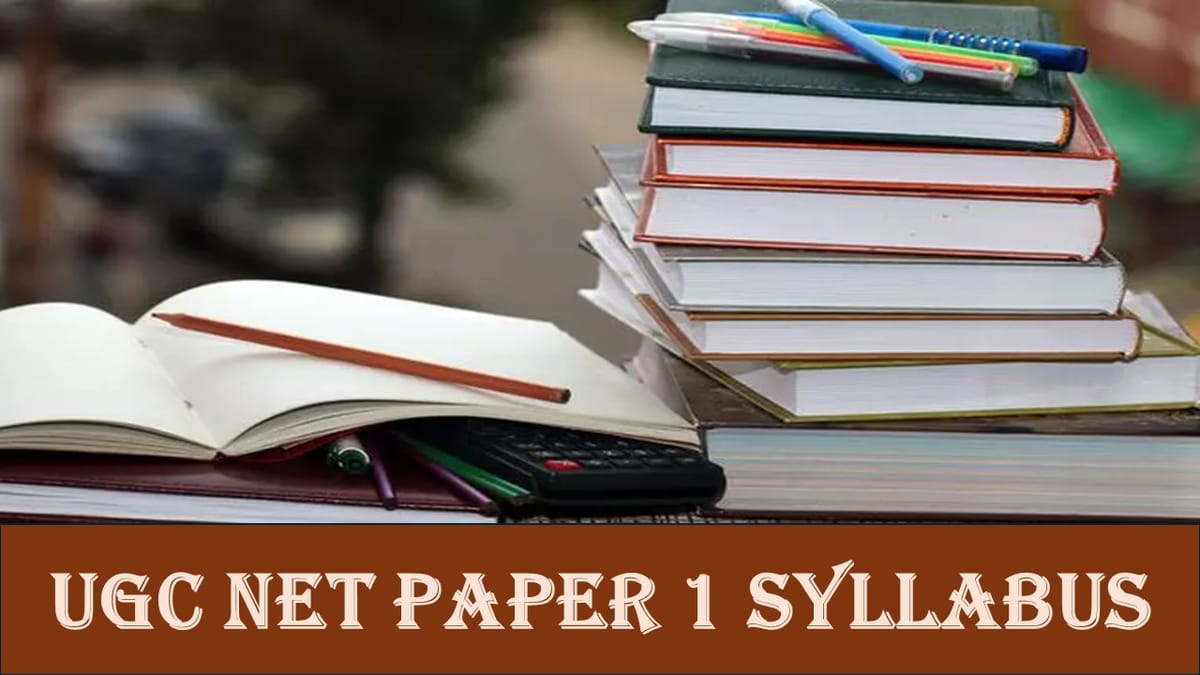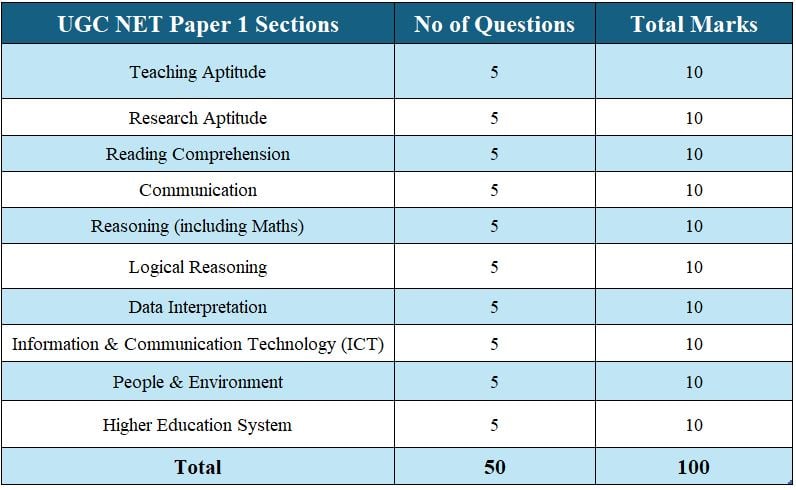UGC NET Paper 1 Syllabus 2024 is Out. Candidates must check the NET Paper 1 syllabus and exam pattern to excel in the exam. Check out the latest UGC NET Paper 1 syllabus and exam pattern her
Shubhra Goswamy | Jun 8, 2024 |

UGC NET Syllabus 2024: UGC NET Paper 1 Syllabus; Check Pattern, Topics Here
UGC NET Syllabus 2024: The exam authority has made the curriculum for UGC NET Paper 1 available on its official website. Candidates should first analyze the published syllabus to determine key topics from the standpoint of the test before devising the best study plan for UGC NET Paper 1. Paper A and Paper B are the two papers that make up the UGC NET Paper 1 Examination. Paper A has broad aptitude questions for all disciplines, while Paper B contains questions on areas covered in Paper 1.
The National Testing Agency (NTA) administers the UGC NET exam twice a year to ascertain a candidate’s eligibility for positions as “Assistant Professor” and “Junior Research Fellowship Assistant Professor” at Indian Universities and Colleges. The purpose of the UGC NET paper 1 is to evaluate research and teaching aptitude in addition.
Comprehending the UGC NET 2024 Papers 1 and 2 syllabus is the initial measure towards exam readiness. The most recent curriculum and exam pattern for the UGC NET must be familiar to candidates in order for them to adequately prepare for the test. To ascertain a student’s eligibility for jobs as an Assistant Professor and/or Junior Research Fellowship (JRF) at Indian universities and colleges, the UGC NET 2024 examination will be administered in 83 courses.
There are two papers in the UGC NET syllabus: paper 1 and paper 2. While UGC NET paper 2 differs based on the candidates’ chosen subjects, UGC NET paper 1 is the same for all candidates. Paper 1 will consist of 50 multiple-choice questions, while Paper 2 will contain one hundred questions that candidates must answer in 03 hours.
The candidates should demonstrate and have cognitive skills such as comprehending the structure of arguments, analyzing and evaluating them, and using both deductive and inductive reasoning. They have to understand how people interact with the environment, with natural resources, and with one other, as well as how these things affect people’s quality of life. It is crucial to thoroughly review the UGC NET Paper 1 Syllabus in order to cover all of these topics in Paper 1. The UGC NET Paper 1 question had an overall moderate difficulty level, according to the previous year’s exam research.
The UGC NET syllabus consists of two papers, and the test will be administered online using a computer. There are 50 multiple-choice questions covering subjects such as comprehension, reasoning (including math), logical reasoning, teaching aptitude, research aptitude, reasoning ability, and so on. View the key themes from the NTA UGC NET Paper 1 curriculum for 2024 below.
Unit 1: Teaching Aptitude
Unit 2: Research Aptitude
Unit 3: Comprehension
Unit 4: Communication
Unit 5: Mathematical Reasoning and Aptitude
Unit 6: Logical Reasoning
Unit 7: Data Interpretation
Unit 8: Information and Communication Technology (ICT)
Unit 9: People, Development, and Environment
Unit 10: Higher Education System
Paper 1 is a 100-point test that all candidates must pass. The exam provides the board with an opportunity to assess candidates’ research and teaching skills, cognitive aptitude, and general understanding of teaching and learning methodologies employed in higher education systems. There are 10 units altogether in the UGC NET Paper 1 Syllabus, along with additional subtopics. Here is a list of each unit’s UGC NET Paper 1 syllabus.
Unit-I: Teaching Aptitude Syllabus
Unit-II: Research Aptitude Syllabus
Unit-III Comprehension Syllabus
Unit-IV: Communication
Unit-V: Mathematical Reasoning and Aptitude Syllabus
Unit-VI: Logical Reasoning Syllabus
Unit-VII: Data Interpretation Syllabus
Unit-VIII: Information and Communication Technology (ICT) Syllabus
Unit-IX: People, Development and Environment Syllabus
Unit-X: Higher Education System Syllabus
Candidates should examine the weightage of the parts included in the UGC NET Paper 1 Syllabus before beginning their preparation. Examine the UGC NET Paper 1 test pattern thoroughly to have an understanding of the section-wise weightage, question format, marking scheme, and so on.
The UGC NET marking scheme states that every right response receives two marks, while wrong replies do not receive any deductions. Papers 1 and 2 exams will go for three hours total, without breaks. Examine the pattern for UGC NET Paper 1 below:

One of the most competitive exams in the nation is the National Eligibility Test (NET). Because of the intense competition, applicants must have a solid strategy to ensure they finish the UGC NET Paper 1 curriculum on time. Checking out the expert-recommended UGC NET Paper 1 preparation advice is hence essential. Let’s talk about the top study strategies for acing the UGC NET Paper 1 exam.
In case of any Doubt regarding Membership you can mail us at contact@studycafe.in
Join Studycafe's WhatsApp Group or Telegram Channel for Latest Updates on Government Job, Sarkari Naukri, Private Jobs, Income Tax, GST, Companies Act, Judgements and CA, CS, ICWA, and MUCH MORE!"